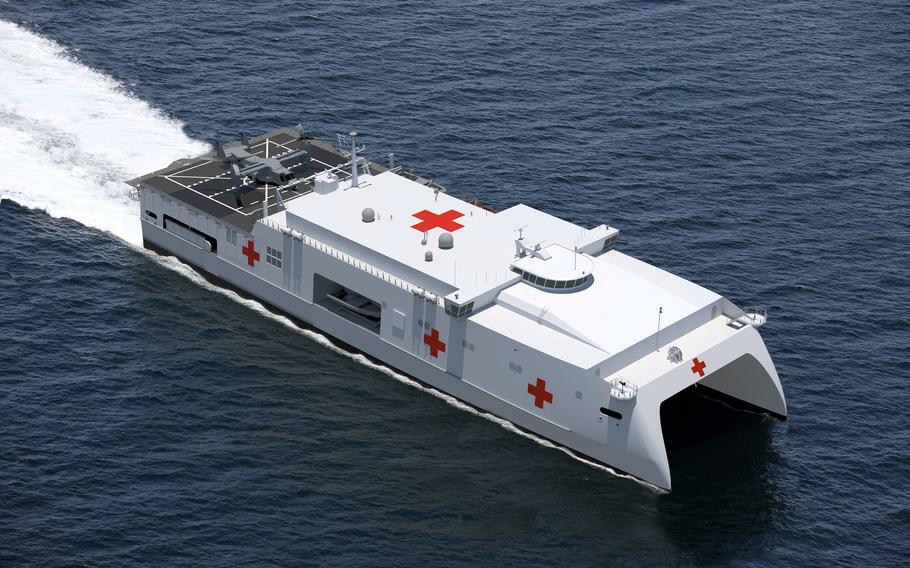
The expeditionary medical ships are designed to move farther and faster than the USNS Comfort and USNS Mercy, up to 5,500 nautical miles at 24 knots. (Austal USA)
The Navy’s newest medical ship will bear the name of the most well-known military medical center in the United States, Secretary of the Navy Carlos Del Toro announced this week.
The ship — the first in its class of expeditionary medical vessels — will be called USNS Bethesda in honor of Naval Support Activity Bethesda, Md., the site of what was known informally as Bethesda Naval Hospital and is now the Walter Reed National Military Medical Center.
Del Toro made the announcement Monday at Walter Reed, according to a Navy news release.
“This ship, as well as all the Bethesda-class of expeditionary medical ships, is designed to provide hospital-level care in austere environments, and will serve not just our Sailors and Marines, but offer assistance and comfort to our allies and partners around the globe in times of need,” he said in the release.
The Navy in December awarded Austal USA a $867.6 million contract to design and build three expeditionary medical ships by May 2030. Austal USA, a 25-year-old subsidiary of the Australian global shipbuilder, is headquartered in Mobile, Ala., and has more than 2,500 employees, according to its website.
The new medical ships will complement the existing hospital ships USNS Comfort and Mercy, Del Toro said. The Bethesda-class ships will “be able to operate in smaller, shallower locations globally,” he said.
The ships will have a flight deck to accommodate military helicopters along with medical capabilities including triage and critical care, three operating rooms, a medical laboratory, and the ability to rapidly stabilize and evacuate multiple casualties, according to the release.
“The naming of the USNS Bethesda remains a testament to our unwavering commitment to the well-being of our forces,” Rear Adm. Darin Via, the Navy surgeon general, said in the release. “It symbolizes the strength, resilience, and compassion that our great Navy exemplifies.”